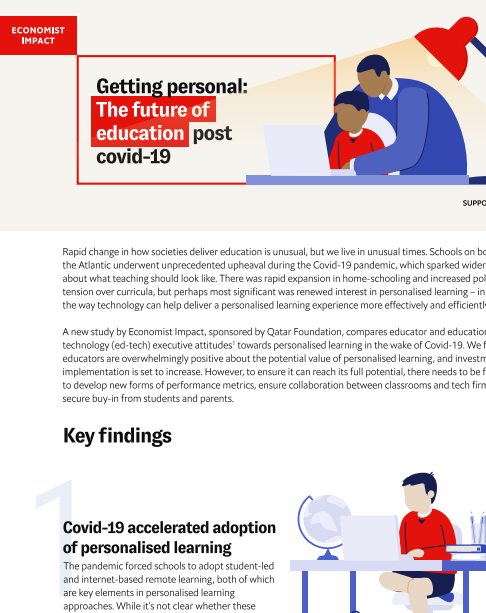Schools on both sides of the Atlantic underwent unprecedented upheaval during Covid-19, which sparked wider questions about what teaching should look like. There was a rapid expansion in home-schooling and increased political tension over curricula, but perhaps most significant of all, was the renewed interest in personalised learning – in particular the way technology can help deliver a personalised learning experience more effectively and efficiently.
Getting personal: The future of education post COVID-19, a new study by Economist Impact, sponsored by Qatar Foundation, compares attitudes towards personalised learning of both educators and ed-tech executives in the wake of COVID-19. We find that:
- Covid-19 accelerated adoption of personalised learning. The pandemic forced schools to adopt student-led and internet-based remote learning, both of which are key elements in personalised approaches.
- Although information technology is a key tool for delivery, it is not enough on its own. Technology adoption does not change culture or approach in teaching: instead the culture changes the kind of technology adopted.
- Greater cooperation between education-technology firms and schools is needed to develop more effective products.
- Students and parents are less convinced than teachers of the benefits of personalised learning. Personalised learning represents a major change from what students are used to, and the way parents themselves were taught in school. Any successful personalised learning programme must convince these groups of its value.
Download the report and infographic to learn more.
 |
| Download Infographic |





